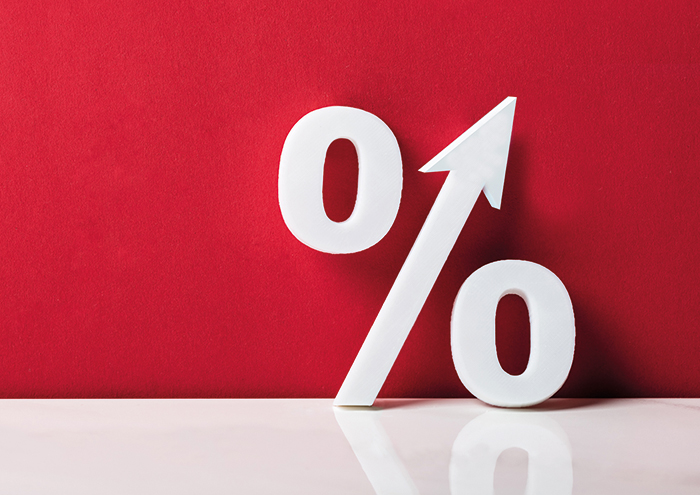
Consumer prices rose by 8.7% in the year to May, unchanged from the previous month, data from the National Office for Statistics shows, prompting fears of a higher base rate rise tomorrow.
Rising prices for airplane tickets, recreational and cultural goods and services, and second-hand cars kept the consumer prices index high — and disappointed economists who had hoped for a modest inflation rate fall to 8.5% in May.
Core inflation — which includes housing costs but excludes energy, food, alcohol and tobacco — rose by 6.5%, up from 6.2% in April, hitting its highest rate since 1992.
The move strengthens the mood among markets that the Bank of England’s Monetary Policy Committee will raise the base rate by at least 25 basis points to 4.75% tomorrow, the 13th rise since December 2021, as it bids to battle inflation.
This would take the rate to its highest level in 15 years. A large minority of investors are betting the hike will be as high as 50 basis points.
Money markets are also betting that the base rate will hit 6% by the end of the year, up from a forecast of 5.75% a few weeks ago, as the central bank bids to bring down rising prices, which lags other developed countries.
In the eurozone, consumer prices index inflation fell to 6.1% in May, down from 7% in April. While in the US inflation dropped to 4%, from 4.9% in April.
Brokers are bracing themselves for further mortgage rate rises, which topped 6% for a two-year fixed rate deal this week — the first time this has happened since the aftermath of former Chancellor Kwasi Kwarteng’s September mini-Budget.
Shaw Financial Services founder Lewis Shaw says: “This is a disaster. With the consumer prices index having stayed the same and core inflation rising, we can expect to see gilt yields spike as investors look for higher returns from government debt.
“This spells terrible news for the property market because the BoE will be under enormous pressure to hike rates tomorrow, almost certainly by 50 basis points.
“With mortgage rates already at the most painful level since the 90s, we can expect a slowdown in the property market and house prices are well and truly in the crosshairs.”
The Business Finance Branch business finance broker Mark Grant points out: “Stubbornly high inflation, stuck at 8.7% for the year to May, is looking like a ‘very British problem’.
“Spain’s inflation rate is in the low single digits and rate rises were paused in the US after their May figure fell back to 4%. A ‘mortgage time bomb’ is part of the commentary around whether interest rate rises are still the right tool to fight inflation, or are adding to our problems.”
Coreco managing director Andrew Montlake adds: “The latest inflation data is set to upset an awful lot of people, leading to a new set of rate rises that will compound the pain of a cost-of-living crisis on the public.
“A further rise in BoE base rate is a nailed-on certainty, and there is now a real possibility they could panic and increase by a further 50 basis points straight to 5%.
“The Bank has one job to do and it is painfully clear that the tool they are currently using is a blunted instrument against inflation that is now endemic.
“Rather than keep doing the same thing, they should pause for thought and look at a different approach before they inflict real harm on the economy and on people’s livelihoods.”
EHF Mortgages founder Justin Moy says: “The fear of God has already been put into borrowers this month, and there are plenty of panicking borrowers already this morning in my inbox screaming for help.”